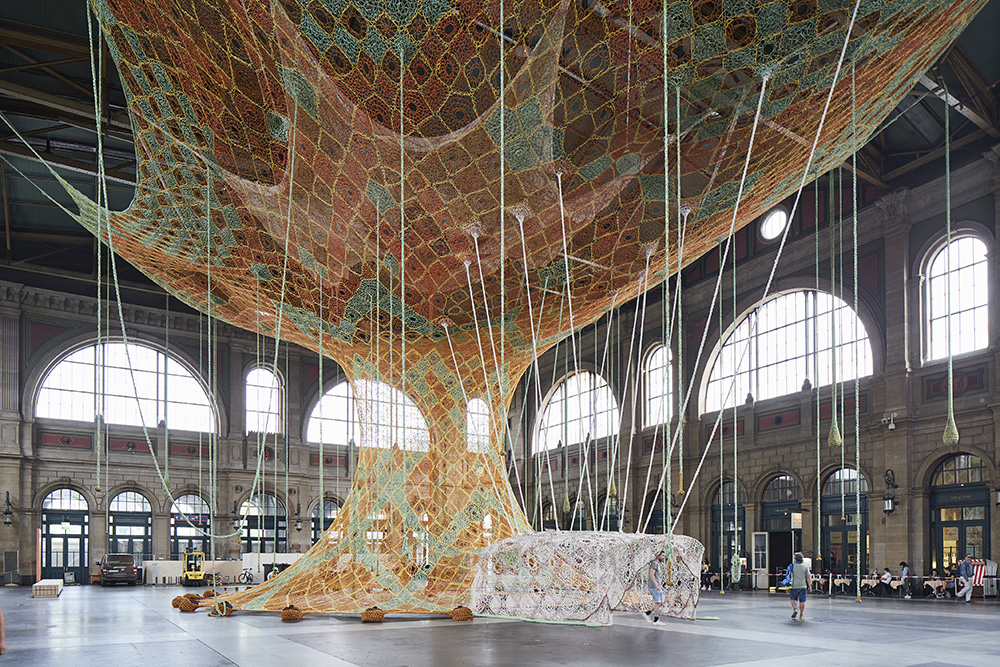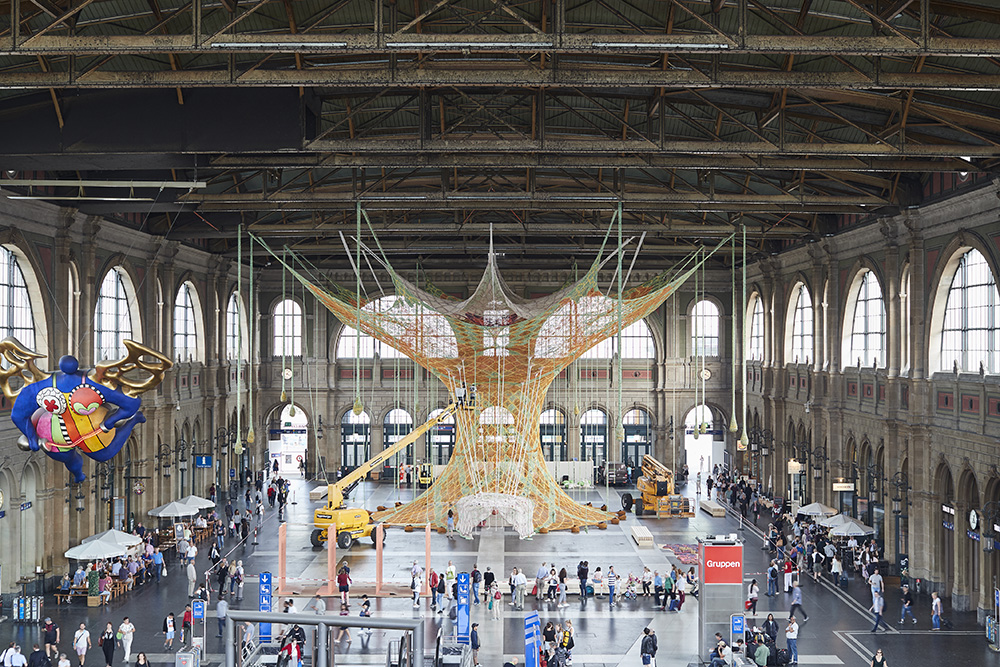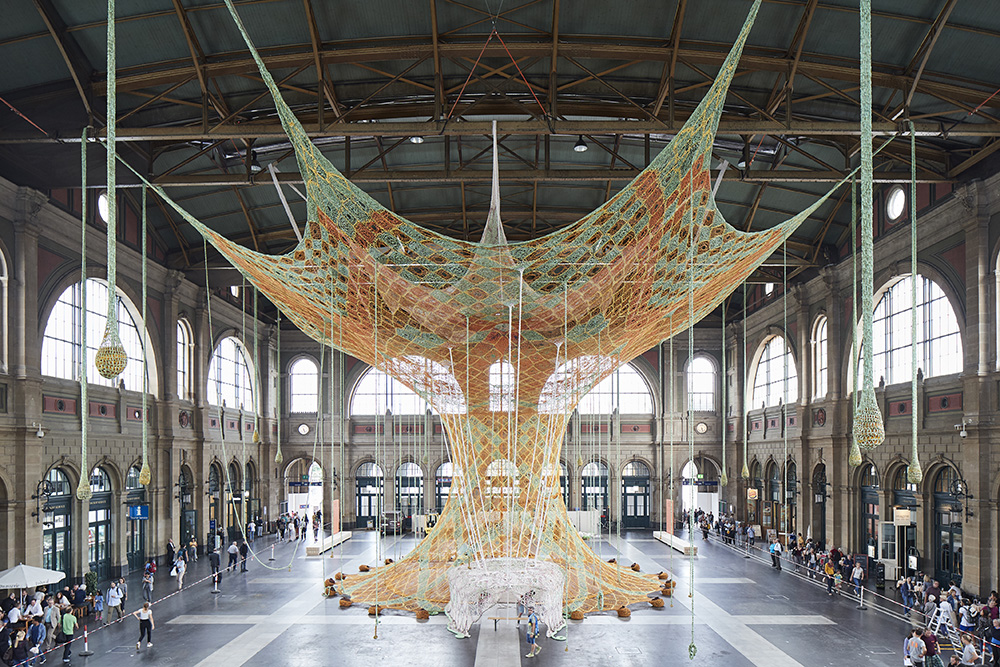ART CITIES:Zurich-Ernesto Neto
 Ernesto Neto is one of Latin America’s most important contemporary artists. Spirituality, humanism, and ecology are among his principal concerns. His work since the 1990s has been characterized by the use of unusual materials and techniques. His sculptures and installations often feature biomorphic forms and organic materials, with transparency and sensuality playing a major role.
Ernesto Neto is one of Latin America’s most important contemporary artists. Spirituality, humanism, and ecology are among his principal concerns. His work since the 1990s has been characterized by the use of unusual materials and techniques. His sculptures and installations often feature biomorphic forms and organic materials, with transparency and sensuality playing a major role.
By Dimitris Lempesis
Photo Fondation Beyeler Archive
Constantly opening new formal and conceptual developments in his work, Ernesto Neto describes sculpture as a living organism transgressing all limitations. In Zurich Main station an installation by Ernesto Neto is on show by Fondation Beyeler. Ernesto Neto’s monumental work “GaiaMotherTree” (2018) is sculpture made of brightly colored hand-knotted cotton strips, resembles a tall tree, extending right up to the ceiling of the station concourse, which is twenty meters high. It is a walk-in structure that functions as a meeting place and a venue for interaction and meditation. A varied program of events for adults and children, with music, workshops, guided tours and talks, will take place inside the installation. “GaiaMotherTree” was made entirely by hand. Strips of cotton were colored with natural dyes, and then knotted together with a finger-crocheting technique to form a giant transparent structure. The upper part of the work, shaped like the crown of a tree, will cover the ceiling of the station concourse. At the base of the tree there is a large space where visitors can linger and rest on seats arranged in a circle. Drop-shaped elements hanging from the branches are filled with aromatic spices and dried leaves. Neto’s ideas have been influenced by the Brazilian Neo-Concrete movement of the 1960s and also by Minimal and Conceptual Art, and Arte Povera. Spirituality, humanism, and ecology are among his principal concerns. His work since the 1990s has been characterized by the use of unusual materials and techniques. His sculptures and installations often feature biomorphic forms and organic materials, with transparency and sensuality playing a major role. Viewers can touch the works and walk through them or set them in motion; in many cases, they also appeal to the sense of smell. The visitor is invited to concentrate on his or her own perception and interact with the work and its environment. In recent years, Neto has turned his attention to a new series of works, which he is realizing in cooperation with the Huni Kuin, an indigenous community living in the Amazon region near the Brazilian border with Peru. The culture and customs of the Huni Kuin, their knowledge and craft skills, their aesthetic sense, their values, their world view, and their spiritual connection with nature, have transformed Neto’s conception of art and become integral elements of his artistic practice.
Info: Zurich Main Station, Bahnhofplatz, Zürich, Duration: 30/6-29/7/18




